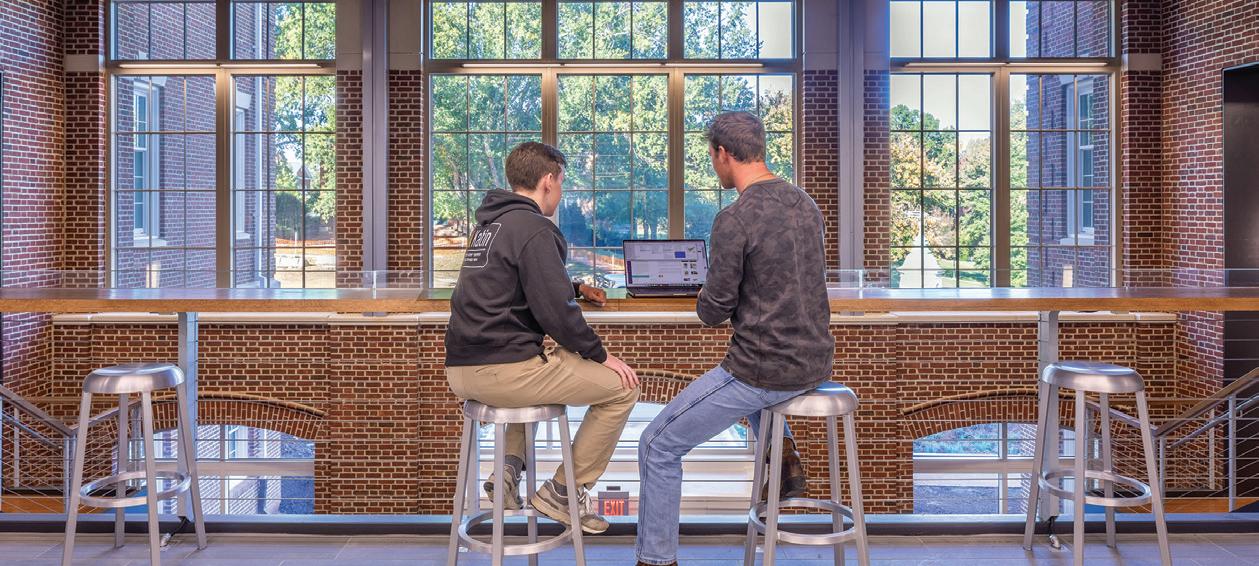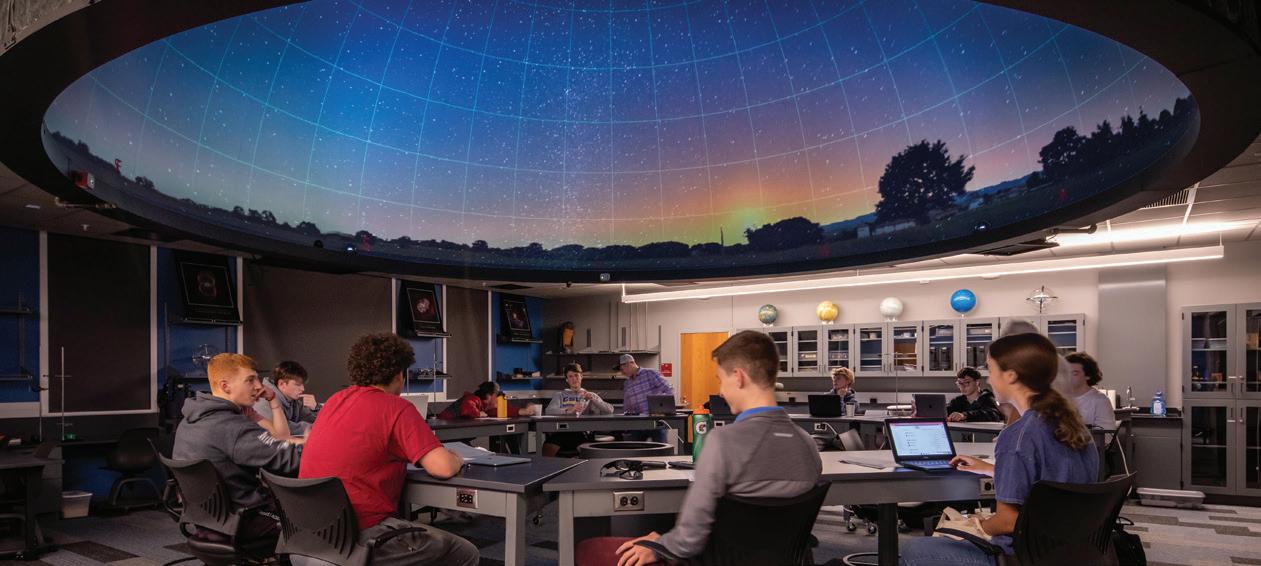
3 minute read
STUDENT RESEARCH at Hampden-Sydney
On March 29, 2021, the inaugural recipients of the Sipe Summer Research Fellowship that honors Spalding Professor of Chemistry Herb Sipe were announced. Director of Undergraduate Research Mike Wolyniak pointed out that “when Dr. Sipe began teaching, it was believed that undergraduate students didn’t belong in the lab because they needed more training in the classroom.” But Dr. Sipe, who arrived at Hampden-Sydney in 1968, understood the importance of undergraduate research in preparing students for post-secondary education and employment, and he championed the movement. Today, undergraduate research is recognized as a high-impact teaching practice that gets students actively engaged in their work and encourages them to consider jobs in which they will do research work more actively.
Dr. Will Rayburn ’71 can attest to the rarity of undergraduate research opportunities 50 years ago. “If any of the other colleges that I was considering had an undergraduate research program, they didn’t mention it,” says Rayburn. The pamphlet that drew Rayburn to Hampden-Sydney—a pamphlet he still has today— however, highlighted the well-organized and structured research program that existed at the College even then.
Today, opportunities for undergraduate research at HampdenSydney abound. The summer research program, sponsored by the Office of Undergraduate Research, offers students in any discipline the chance to work one-on-one with a trained faculty mentor to pursue original research. Students accepted into the program receive up to nine weeks of on-campus housing and a stipend to cover living expenses. This past summer alone, 35 students participated in research on everything from the influence of the family of former Dean of Admission Anita Garland on Virginia politics to synthesizing proteins on the SARS-CoV2 virus.
Students may either work on campus on a project approved by the Office of Undergraduate Research or pursue smaller-scale projects remotely. Students on campus receive $300 per week plus free housing while students working from home receive a $750 stipend. These experiences result in further opportunities such as presenting at professional conferences—an honor that is rare for most undergrads but that is rapidly becoming more commonplace for Hampden-Sydney students thanks to tireless advocacy from their faculty mentors.
While on campus for Reunion in June, Dr. Rayburn spent time with student researchers and discovered that the summer research program is “a jewel of the College,” saying that “the longevity and consistent quality of Hampden-Sydney’s summer research program is a unique benefit to our students.”
To read more about student research, visit hsc.edu/academics/ student-research. To learn more about how to support undergraduate research at Hampden-Sydney, contact Director of Undergraduate Research Mike Wolyniak at mwolyniak@hsc.edu.
Scholar Snapshots
The Garland Family: Two Paths Diverged in a Magic City
Celia Carroll-Jones, Associate Professor of Government and Foreign Affairs
“I investigated the lives of Senator Ray L. Garland and Roanoke City Councilman Robert Garland (relatives of former Dean of Admissions Anita Garland) and how their careers coincided with the reemergence of the Republican party in Virginia. In addition to humanizing the stories of politicos, which is something that often gets erased, my research shows Roanoke and Southwestern Virginia’s importance to the development of the Commonwealth.”
NOAH MOORE ’23, HISTORY MAJOR
Food Deserts in Virginia: Healthy Food Access’ Effects on Diabetes and Obesity
Byron Carson, Assistant Professor of Economics and Business
“Using health ranking data of every county in Virginia, I examined whether food deserts lead to higher rates of obesity and diabetes, and I found that they do not. Summer research gives students the opportunity to learn how to apply the ways of thinking that they have been learning through their studies with a real-world application with scholars in their field. For example, my results could guide the development of public health policy related to food deserts.”
DAVID CREGO '23, ECONOMICS MAJOR
Synthesis of the Transmembrane Domain of the Spike Protein from SARS-CoV-2 Using Solid Phase Peptide Synthesis and Determination of Its Oligomerization State
Tim Reichart, Elliott Assistant Professor of Chemistry
Selecting different proteins found on the SARS-CoV-2 virus, these four scholars sought to synthesize their protein’s transmembrane domain and determine its oligomerization state, which is the way the peptides organize themselves to become functional. The goal is to alter the sequence or structure of the amino acids to inhibit how the peptides come together and then inhibit how the protein functions, which could lead to a method that inhibits the spread of SARS-CoV-2 and other coronaviruses.
“The opportunity to stay on campus over the summer is unique. The expectations laid out by the professors mimic those of graduate-level research. Much of what we accomplish is done on our own timelines. Living on campus with like-minded, motivated individuals adds to the experience as well.”
ANDREW REHAK '23, BIOLOGY MAJOR
“Summer research is important because it has allowed many students to perform high level research as an undergraduate which certainly distinguishes them from their peers at state schools.”
BRETT REIS '23, CHEMISTRY MAJOR
“This lab work mimics a graduate program or professional lab experience and helps prepare students for post-collegiate life.”
TYLER HOBART '23, BIOCHEMISTRY MAJOR
Installation of the Hampden-Sydney College Planetarium and Establishing an Outreach Program
Jonathan Keohane, Associate Professor of Physics and Astronomy
I was able to get to work closely with the team that installed the planetarium equipment in the Pauley Science Center, and I learned how to use the software from the people who developed it. It was a great opportunity for me to improve my communication and organization abilities.”
ANTHONY DISCHINO '23, PHYSICS MAJOR


